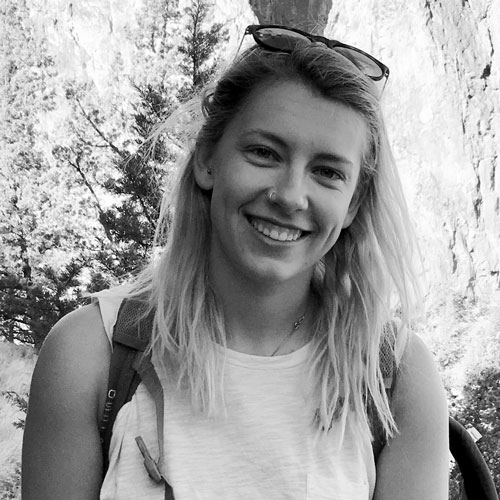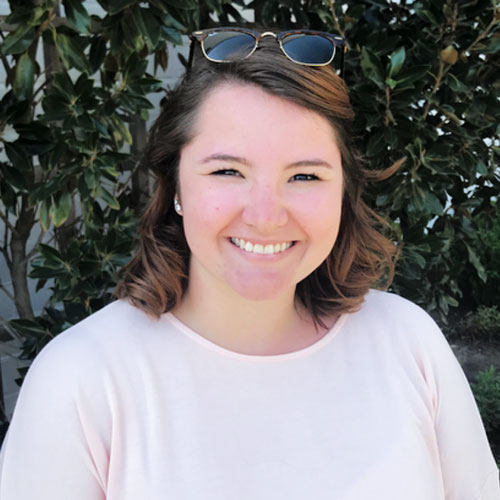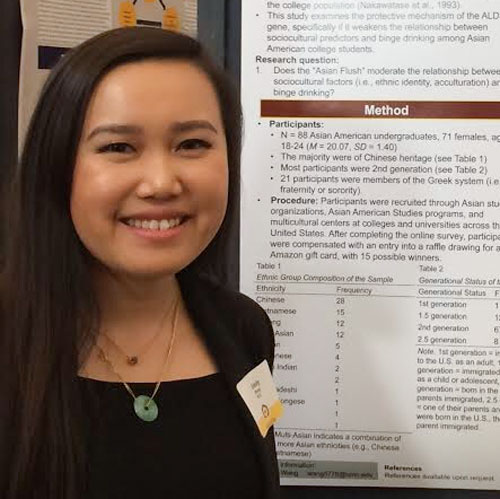Meet the recipients of the Spring 2018 Sharon Borine Award
Kathleen Francis

Do people remember how they cope? Do we know how to measure coping? Coping is a key predictor of psychological well-being, as well as the basis for many psychological interventions such as cognitive behavioral theory (CBT). Kathleen’s research focuses on the validation of different methods of measuring coping. Recently retrospective methods of measuring coping have been criticized due to memory bias, and low reliability. To circumvent these problems measuring coping daily has become the new gold standard. However, daily measurement takes time and resources. Kathleen attempted to better understand if retrospective and daily measures of coping were in fact measuring the same construct. In conclusion, she found measuring coping retrospectively may in fact measure coping just as well as daily measures, contrary to popular belief. Next year Kathleen plans on pursuing a graduate degree in behavioral science focusing on the cognition of resilience in The Netherlands at Radboud University in Nijmegen.
Grace Veith

I am interested in how friendships can be facilitated in college courses to increase well-being and other positive outcomes amongst students. My project focused on looking at whether assigning study partners in Psychology 1001 discussion sections led to increased well-being, feelings of social belongingness, course engagement and academic outcomes for students. We hypothesized that being assigned a study partner would lead to increases in all these outcomes. Students in the experimental condition were randomly assigned to meet with another student and complete a short “get to know” you activity. They were then encouraged to meet throughout the semester to study or contact each other with questions about the course. Students completed a baseline survey (before being assigned a study partner) and a follow up survey to measure our outcomes of interest. None of our hypotheses were supported but I truly enjoyed learning from the experience and hope to continue research on the benefits of friendships in college courses in the future.
Emily Wang

My research study examined Asian Americans and binge drinking, specifically whether the "Asian Flush" is protective against binge drinking. The "Asian Flush" is caused by a mutated gene which produces a less functional alcohol-metabolizing enzyme, resulting in unpleasant responses such as facial flushing and increased heart rate. Within a sample of Asian American undergraduates, I looked at the relationship between peer alcohol use and binge drinking with the "Asian Flush" as a moderator. Results revealed a significant main effect for peer alcohol use, but the moderation of the "Asian Flush" was not significant. This suggests that the risk factor of peer alcohol use outweighs the protective factor of the "Asian Flush." In other words, the "Asian Flush" is not protective in the college student population. Considering how rates of alcohol abuse are rising in this population, I hope my research paves the way for future studies that explore alcohol abuse in Asian Americans, as they are often an overlooked group due to the model minority myth.


